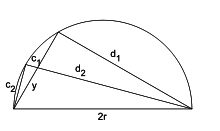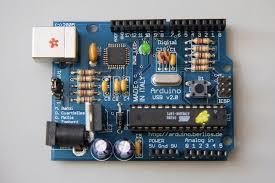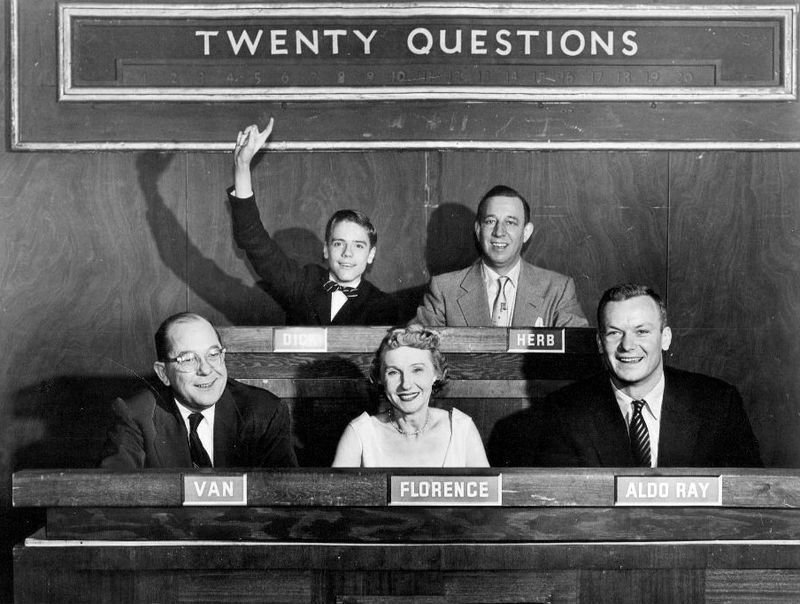Open Licensing 101
| Open Business Models
#OSOC2021
https://slides.com/gwen/osoc21
Gwen Franck
@g_fra
"Open Licensing 101| Open Business Models" by Gwen Franck is licensed under a Creative Commons Attribution Share Alike 4.0 International License, except otherwise noted

Contents:
-
Copyright for dummies
- What it is
- What it isn't
-
What does 'open' mean?
-
How to use open licenses
Copyright for dummies
(warning: not legal advice!)
Copyright is a type of intellectual property that gives its owner the exclusive right to make copies of a creative work, usually for a limited time.
(https://en.wikipedia.org/wiki/Copyright)

"Caution Tape" by Eugene Zemlyanskiy on Flickr CC BY
Copyright?
(In Belgium)
-
death author +70 years (can be different in other countries)
- physical ownership is not necessary to have the intellectual ownership
- not the only intellectual property right (others: moral rights, portrait rights, 'neighbouring rights', ...)
- based on Berne Convention from ...1886
- Conditions:
- Physical creation (not: ideas)
- Original work
- Automatic: if it's eligible, it's protected, no registration or deposit needed!

Public Domain
'out of copyright'
OR the work was never eligible for copyright protection in the first place (warning: other IP rights might be applicable!)
- death of author is longer than 70 years ago (http://outofcopyright.eu)
- OR rights holder has waived rights











Using and citing public domain works
- Status can be indicated explicitly (CC0, CC PD)
- Can be assumed (although this requires a certain level of knowledge): see previous slide (useful tool: http://outofcopyright.eu/ )
- Beware of copyfraud: do not 'close' materials that are in the public domain
-
You are not legally obligated to cite works in the Public domain but:
- It's 'nice' to do so in any case!
- For scientific research: reusing materials, regardless of copyright status, without proper attribution is bad science

'All rights reserved'

If a work is copyright protected, you cannot access, share, reuse or modify without explicit permission from the rightsholder.
except:
Limitations and Exceptions (aka 'Fair Use')
- Translations into braille
- For scientific purposes
- Citations
- Compilation for educational purposes
- Parody or Pastiche
- Private shows in family home (without asking admission fees)
- ...
Copyright, originally, was invented to support creators during their lifetime.
It is not really adapted to the reality of the digital age (aka 'the internet')

It's not because something is only 'one click away' that it is (legally) accessible or re-usable
- Cross-country collaboration: what jurisdiction?
- Different rules in different countries!
- Innocent infringements on social media are treated like piracy
- Sometimes the creator doesn't want to bother with (c) but it's not always possible to waive the rights
- Digital Rights Management: even if you own something, you can't always do with it what you want
- Works in the public domain are being 'protected'
- Publicly paid for research is being locked behind paywalls






What does 'open license' mean?

'Some rights reserved'
A work can be copyright protected, but the rights holder can 'waive' certain rights, making it possible for a user, without asking permission, to
- access
- share
- reuse
- modify
the work.
Usually, this is done by the rights holder by using an 'open license'.
"Some rights reserved"

Open licenses : 'a patch for a broken copyright system'
(Or other Open Licenses)
Advantages for the creator
- make clear from the start what can and cannot be done with your work ('some rights reserved')
- remove legal uncertainty for the (re)user
- removes the necessity to arrange permissions on individual basis
- have a legal basis to react against copyright infringement

Creator: How do you apply an open license
- You can embed, or just copy paste the text and/or icon
- Different elements (can or cannot be combined)
- Attribution
- (Not) Allowing commercial use
- (Not) Allowing adaptations or modifications
- Require open license for derivations (ShareAlike /'copyleft')
Picking the right one:
Remember:
- Once applied, it cannot be revoked for that version of the work
- It lasts as long as (c) lasts
- Beware of 'license proliferation': many different licenses can complicate interoperability
- not every open license is applicable everywhere
- not every licence is suitable for every content type
- Text and images: CC, CC0, ...
- Databases: CC BY, CC0, ODBL, ...
- Software: GNU, ...
- Hardware: CERN, TAPR, ...
The easier you make it for somebody to figure out their re-use rights, the more likely it is that they will respect them!
Be clear and unambiguous when creating and displaying your work's metadata (i.e. the information about your work)
Use license logo if possible and link to the human-readable license text
Make sure people can reach you or the platform when in doubt
Advantages for the user
- It's clear from the license text what you can and cannot do
- No need to ask permission
- Often (but not necessarily) free
- Easier to build on existing stuff without breaking copyright
- Easy-to-read-and-understand

User: Finding openly licensed materials












User: How to comply with the license
- (tip: https://tldrlegal.com)
- Usually, there's a user friendly version that says what you can and cannot do
- In a lot of cases, the platform offers suggested attribution texts (or you can use a site like this)
- Non-compliance is a copyright infringement!
- Even if attribution is not required, it's a NICE thing to do!
- Tired of citing? Some services that use open licenses also offer a paid service where you don't have to cite anymore (e.g. the Noun Project for logo's and icons)


Accident ! by clement127 found on Flickr (CC BY-NC-ND 4.0)
https://creativecommons.org/licenses/by-nc-nd/4.0/
www.flickr.com/photos/clement127/
Title
Author
Source
License
Don't forget:
- Open licenses are operative only when applied to material in which a copyright exists, and even then only when a particular use would otherwise not be permitted by copyright
- Some reuses are allowed without license!

interesting links
- All icons: The Noun Project
- Background image: http://atfab.co/oswunderkammer/
- License citation tool: https://lizenzhinweisgenerator.de/?lang=en
- All other images not credited on the slides: Wikimedia Commons
- Interesting reads:
- http://opendefinition.org
- http://creativecommons.org
- All Wikipedia articles related to Open Source
- https://stateof.creativecommons.org/
- John Oliver on net neutrality (check YouTube)
- http://danskdesigncenter.dk/en/understand-open-source-manufacturing-30-minutes
•Good exercise: http://businessmodelalchemist.com/2010/01/mapping-business-models-a-knowledge-game.html
•The Business Model Canvas book: Alexander Osterwalder and Yves Pigneur, “Business Model Generation”, Wiley (2010) https://strategyzer.com/books/business-model-generation . More on ‘open’ business models: Paul Stacey “What is an Open Business Model and How Can You Generate Revenue?“, Medium (2016) https://medium.com/made-with-creative-commons/what-is-an-open-business-model-and-how-can-you-generate-revenue-5854d2659b15
•The Open Business Model Canvas: Open Business Model Canvas by Paul Stacey, Creative Commons - based on Business Model Canvas Poster designed by: Business Model Foundry AG CC BY-SA 3.0 https://docs.google.com/drawings/d/1QOIDa2qak7wZSSOa4Wv6qVMO77IwkKHN7CYyq0wHivs/edit
•The original Business Model Canvas is available under a CC BY-SA 3.0 license. https://strategyzer.com/canvas/business-model-canvas
Contact
gwenfranckgcv@gmail.com
@g_fra
Creative Commons Belgium mailinglist
<cc-be@creativecommons.domainepublic.net>
"Creative Commons | Open for business" by Gwen Franck is licensed under a Creative Commons Attribution Share Alike 4.0 International License, except otherwise noted

Bonus:
Open For Business
What does it mean to put work in the commons?
Use the full potential of the internet by making your work as accessible as possible
Find, access and re-use openly available works
In the digital commons!
"Traditional" copyright
- automatically
- "protects" for x amount of time
- conditions (variable)
- exceptions possible
- current laws: not adapted to digital age
Open Licensing
- rights holder determines beforehand what can and cannot happen with the work
- aim: facilitating re-use
- conditions may apply
- no need to ask permission for re-use (when conditions are respected)
Create
- make your work (and its metadata) online available
- use open formats and standards
- use an open license
- be clear and unambiguous about re-use conditions
- cite and acknowledge your own sources
- make use of the augmented versions of your work

Access
- cite and acknowledge the creator
- respect license conditions
- make any augmentations or adaptations openly available
- look for open source alternatives
- support designers and makers financially if possible

Re-use
- permission needed when all rights reserved
- unconditional when in the public domain
- conditional when the work is openly licensed
- grey zone for works that have no known ownership but are 'available'

Going Open? Not for me!
aka common misunderstandings about the digital commons
I am not giving away my work for free!

Somebody else will steal my idea!

I want to control re-use of my work

It is not safe, I'm the only one who knows how my design works

- It is not an 'all or nothing' situation:
- some parts of your business can be (c) based while other parts can be openly licensed
- content
- workflow
- business model
- different types of open licenses regulating
- commercial re-use
- modification
- 'copyleft'
- flexible in time: open licensing the original content is irrevocable, but as rightsholder you can always create a 'closed' version or service on top
- some parts of your business can be (c) based while other parts can be openly licensed
Advantages of going open
VISIBILITY
make your work known globally
timestamp
see what happens with your work
generate traffic

BOOST INNOVATION
open = easy and quick access for the brightest minds around the world
'first mover advantage'

MAKE MONEY
first mover advantage
new forms of revenue
boost research and development
increase traffic

DESIGN GLOBAL - PRODUCE LOCAL
benefit from worldwide creativity
support local makers

IMPROVE PORTFOLIO
take advantage of global input and re-use of your work
connect with likeminded people worldwide

SAVE MONEY
transaction fees
promotion/marketing
production costs
market research

COMMUNITY BENEFITS
going open makes it easier for like-minded communities accross the globe to connect and share their resources

SOCIETY BENEFITS
providing quick and free access can boost research into societal issues
level the playing field
'corporate social responsibility'

EXAMPLES
Blender
- 3D creation suite
- openly licensed, all types of reuse allowed for free
- community of users and developers improve the product
- accept donations


Metropolitan Museum of Art
All public domain works and all metadata (both PD works and works under (c) are made available under a CC0 license
Increase in downloads: 64%
Increase in Wikipedia articles using Met content: 500%
Wikimedia
- openly licensed and public domain content only
- re-use: free but conditional: attribution and open licensing (when original is (c) )

The Noun Project
- Icons and logo's
- Free reuse: attribution required
- Freemium model - unlimited royalty free access
- Creator of icon retains copyright

Freesewing
- an open source platform for made-to-measure sewing patterns
- all patterns, docs, API are openly available and adaptable

Wikihouse
- (a.o.) tool library for open source house designs

Android
- largest mobile operating system in the world
- source code is open, even for competitors

Arduino
- microcontrollers
- open source hardware and software
- readymades are available commercially

https://www.arduino.cc
Image: By Matt Biddulph (Flickr: A hand-soldered Arduino) [CC BY-SA 2.0 (https://creativecommons.org/licenses/by-sa/2.0)], via Wikimedia Commons
OpenDesk
- locally made furniture based on digitally available open designs
- platform, maker and designer get fee when a product gets made

Roden
- bike designs
- can be adapted to your own needs
- available under a CC BY-SA 4.0 license
- adaptations must be shared under the same license

Farmhack
- (a.o.) tool library for open source farming tools

TESLA
- TESLA puts its car designs as open source and files as little patents as possible (although some say this is not true)
- Elon Musk cites environmental concerns - Tesla can't keep up production in order to ensure


Open Licensing 101 | Open Business Models
By gwen
Open Licensing 101 | Open Business Models
Presented at #OSOC21 on July 27th 2021
- 1,834











